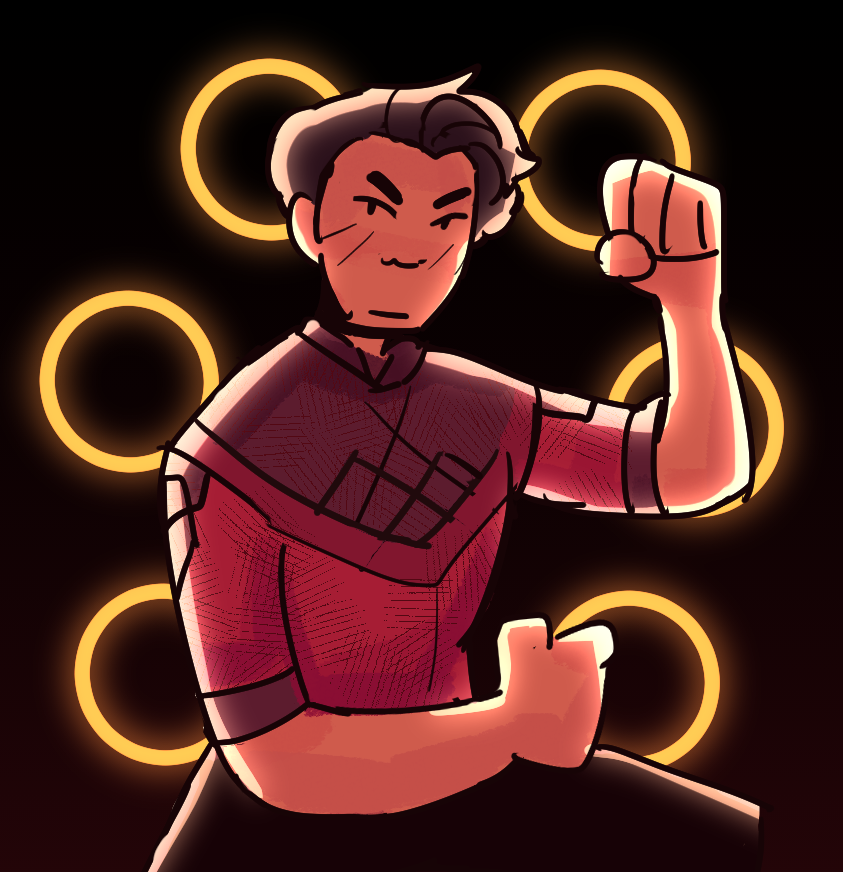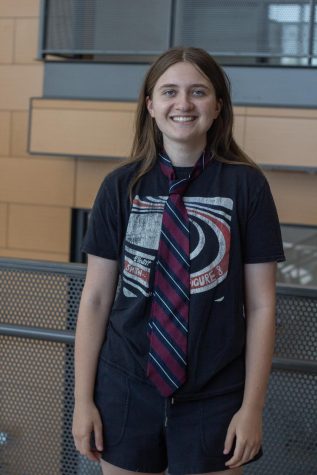Blockbusters return with “Shang-Chi and the Legend of the Ten Rings”
September 12, 2021
Five years after the questionable decision to cast Tilda Swinton as a Tibetan monk in “Doctor Strange,” Marvel is determined to get things right this time around with “Shang-Chi and the Legend of the Ten Rings,” the studio’s first movie to highlight an Asian superhero. Luckily, they succeeded. “Shang-Chi” is a fresh spin on the Marvel Cinematic Universe (MCU) classic with its gripping martial-arts-infused action sequences and surprisingly emotional punch.
Shaun (Simu Liu) is a loveable man-child breezing through life in a valet job with his best friend Katy. Until one day when it’s revealed through an epic hand-to-hand combat fight scene against a group of thugs that he is concealing a secret identity: Shaun is really Shang-Chi, a kung fu master who has spent his life hiding from his 4,000-year-old evil warlord father, Wenwu. From here on out the movie shifts into a family reunion of sorts set in a universe of magical realism reminiscent of the beloved “Black Panther” world from years prior.
“Shang-Chi” is ultimately a story of balancing acts. The skillful work of Simu Liu creates a charismatic and relatable everyman who simultaneously possesses highly supernatural and intimidating combat powers. The true shining star, though, is undoubtedly Shang-Chi’s father, Wenwu (Tony Leung). While Leung’s character is clearly abusive and manipulative, he never fails to be sympathetic. Unlike previous Marvel villains who feel like empty archetypes placed in movies to fill a gap, Wenwu’s motivations are thoroughly fleshed out, making him a compelling and distinctly human villain who commands every second of his screen time. Wenwu doesn’t attempt to carry out an overused agenda; rather, his actions are in response to the grief he carries from his loving wife’s death.
An interesting dynamic is added based on the tension between Shang-Chi and his father. While Shang-Chi has spent the majority of his life living in the bustling American town of San Francisco, Wenwu represents a different generation of traditional Chinese-based customs. The cultural barrier between father and son is evident, yet complicated by adding a wise spin of magic into the mix. Shang-Chi struggles to live up to his father’s expectations as a first-generation immigrant. But the result of that struggle is magnified to world devastating consequences because of his dad’s supernatural abilities.
In a shocking turn of events, even Awkwafina as Katy stands out in the movie. While it’s clear her presence was brought in solely to serve as a funnel for the awkward comedic relief she’s built her name on, the comedian’s acting chops are shown clearly in her ability to match tones with various scenes. At times when drama and tragedy are needed, Awkwafina takes a justifiable step away from humor, allowing us to breathe a sigh of relief.
Unfortunately, the biggest downside of “Shang-Chi” is its need to assert itself as a certified Marvel blockbuster. By the time we are thoroughly invested in the story as a stand-alone drama, admiring its unique soulful style, the film can’t help but throw us back into classic Marvel tropes with a mind-numbingly long and CGI infused final act that I may have taken a quick nap in the middle of. Giant secret ninja organizations and magical dragons are cool and all, but they make weak tension when the movie up to this point has been developing dynamics between complex characters. Before magic served as a way to enhance character relationships, here it shifts to detract from them by stealing the focus.
At its best, “Shang-Chi” embraces itself as an outlier in MCU history, focusing on a personal story of familial conflict and psychological trauma. At its worst, it is desperately searching for ways to heighten the stakes and remind us we’re still watching a superhero movie. Either way, you’re guaranteed to get the money’s worth out of your popcorn.



